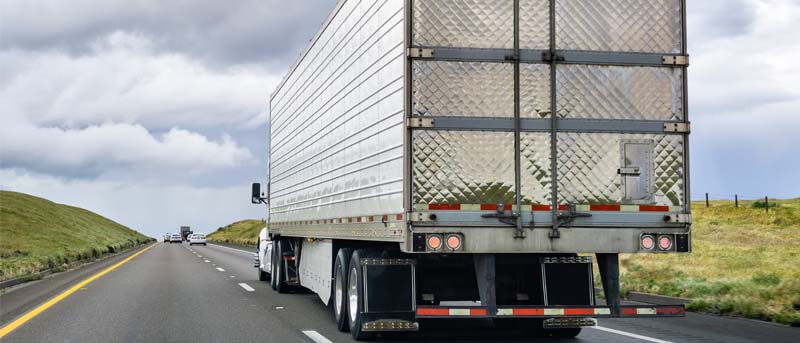How Fleets Can Easily Remove Crash Preventability Off CSA Scores
CNS can help with our Roadside & Incident Report Management service where a team of DOT Compliance Specialists will assess the Department of Transportation safety records
We are a team of DOT Compliance and Licensing Professionals helping trucking and transportation companies remain safe, compliant, and profitable.
CNS or Compliance Navigation Specialists is DOT Compliance company that assists trucking and transportation companies remain DOT Compliant. We are part of a network of companies, CNS Companies, specializing in services related to the transportation, manufacturing, construction, service, education and medical industries.

A full-scale DOT Compliance Program managing a long haul carrier’s safety, compliance, licensing and more.
Learn more >>>
A DOT Compliance Program that keeps motor carriers compliant with the 6 Basic DOT Regulations required of all carriers.
Learn more >>>
Our Short-Haul/Construction Program is a full-scale program designed for private carriers that do not haul for-hire.
Learn more >>>
Our most comprehensive DOT Compliance Program, operating as your company’s off-site Safety Director or assisting your current safety personnel.
Learn more >>>
Our Non-CDL Program is a full-scale program managing safety, compliance, licensing and more for moving companies, couriers, landscapers, or any company subject to DOT regulations and does not employ CDL drivers.
Learn more >>>
Our DOT Audit Services cover a number of different types of DOT Audits that new and existing carriers will be subject to.
Our DOT Driver Services help trucking companies and carriers to stay compliant as they grow and hire more drivers.
Our DOT Vehicle Services focus on ensuring your vehicles are compliant with DOT Regulations, which is just as important as your drivers.
Our DOT Services for Special Carriers focus on companies outside of the typical motor carrier, like HAZMAT, Passenger and Bus Carriers.
CNS is part of a group of companies that offer other necessary services for the trucking and transportation industry, such as Commercial Trucking Insurance, CDL Training, Online Training Course, and even Healthcare.
Our DOT Licensing Services will cover you whether you are an existing company or just starting a trucking company. Our DOT Licensing Specialists can help you get up and running and in days with your DOT number, MC Authority, EIN, UCR, IFTA, 2290 HVUT, Fuel Taxes and can even set you up to get your Commercial Driver's License (CDL) with CNS Driver Training Center.
Our DOT Licensing Specialists will help you with every aspect of starting a trucking company. All you need to do is choose a name for your trucking company.
You will need to ensure your DOT Number, MC Authority, Vehicle Registration, etc. is all set up properly when you start your trucking business.
Our Licensing Specialists can help with all aspects of filing and renewing licenses, fuel taxes, etc.
CNS is part of a group of companies that offer other necessary services for the trucking and transportation industry, such as Commercial Trucking Insurance, CDL Training, Online Training Course, and even Healthcare.
CNS can help with our Roadside & Incident Report Management service where a team of DOT Compliance Specialists will assess the Department of Transportation safety records
CNS or Compliance Navigation Specialists is DOT Compliance company that assists trucking and transportation companies remain DOT Compliant. We are part of a network of companies, CNS Companies, specializing in services related to the transportation, manufacturing, construction, service, education and medical industries.
CNS Companies is a network of companies specializing in services related to the transportation, manufacturing, construction, service, education and medical industries. Our DOT Compliance division is handled by Compliance Navigation Specialists, CNS Insurance handles Commercial Truck Insurance, CDL training is managed by the CNS Driver Training Center and healthcare is managed by CNS Occupational Medicine.
We are a team of DOT Compliance and Licensing Professionals helping trucking and transportation companies remain safe, compliant, and profitable.
CNS or Compliance Navigation Specialists is DOT Compliance company that assists trucking and transportation companies remain DOT Compliant. We are part of a network of companies, CNS Companies, specializing in services related to the transportation, manufacturing, construction, service, education and medical industries.

A full-scale DOT Compliance Program managing a long haul carrier’s safety, compliance, licensing and more.
Learn more >>>
A DOT Compliance Program that keeps motor carriers compliant with the 6 Basic DOT Regulations required of all carriers.
Learn more >>>
Our Short-Haul/Construction Program is a full-scale program designed for private carriers that do not haul for-hire.
Learn more >>>
Our most comprehensive DOT Compliance Program, operating as your company’s off-site Safety Director or assisting your current safety personnel.
Learn more >>>
Our Non-CDL Program is a full-scale program managing safety, compliance, licensing and more for moving companies, couriers, landscapers, or any company subject to DOT regulations and does not employ CDL drivers.
Learn more >>>
Our DOT Audit Services cover a number of different types of DOT Audits that new and existing carriers will be subject to.
Our DOT Driver Services help trucking companies and carriers to stay compliant as they grow and hire more drivers.
Our DOT Vehicle Services focus on ensuring your vehicles are compliant with DOT Regulations, which is just as important as your drivers.
Our DOT Services for Special Carriers focus on companies outside of the typical motor carrier, like HAZMAT, Passenger and Bus Carriers.
CNS is part of a group of companies that offer other necessary services for the trucking and transportation industry, such as Commercial Trucking Insurance, CDL Training, Online Training Course, and even Healthcare.
Our DOT Licensing Services will cover you whether you are an existing company or just starting a trucking company. Our DOT Licensing Specialists can help you get up and running and in days with your DOT number, MC Authority, EIN, UCR, IFTA, 2290 HVUT, Fuel Taxes and can even set you up to get your Commercial Driver's License (CDL) with CNS Driver Training Center.
Our DOT Licensing Specialists will help you with every aspect of starting a trucking company. All you need to do is choose a name for your trucking company.
You will need to ensure your DOT Number, MC Authority, Vehicle Registration, etc. is all set up properly when you start your trucking business.
Our Licensing Specialists can help with all aspects of filing and renewing licenses, fuel taxes, etc.
CNS is part of a group of companies that offer other necessary services for the trucking and transportation industry, such as Commercial Trucking Insurance, CDL Training, Online Training Course, and even Healthcare.
CNS can help with our Roadside & Incident Report Management service where a team of DOT Compliance Specialists will assess the Department of Transportation safety records
CNS or Compliance Navigation Specialists is DOT Compliance company that assists trucking and transportation companies remain DOT Compliant. We are part of a network of companies, CNS Companies, specializing in services related to the transportation, manufacturing, construction, service, education and medical industries.
CNS Companies is a network of companies specializing in services related to the transportation, manufacturing, construction, service, education and medical industries. Our DOT Compliance division is handled by Compliance Navigation Specialists, CNS Insurance handles Commercial Truck Insurance, CDL training is managed by the CNS Driver Training Center and healthcare is managed by CNS Occupational Medicine.

Of the nearly 2.85 million roadside inspections, 57% or 1.62 million received a violation, of which 17.7% were OOS violations.
The Federal Motor Carrier Safety Administration’s primary mission is to prevent commercial motor vehicle-related fatalities and injuries. A&I’s Enforcement Programs inform FMCSA’s ability to improve safety on our roads by detailing carrier, driver, and vehicle enforcement data across the county with FMCSA’s many tools and state partnerships.
The 2020 pandemic saw a dramatic decrease in the number of carrier reviews as the industry struggled to keep up with the supply chain emergencies, from health care supplies to keeping store shelves stocked in a lockdown.
As we learned to live during the pandemic, 2021 saw a dramatic increase in off-site audits and roadside enforcement rebounded to pre-pandemic inspection levels.
CARRIERS MUST GO DIGITAL TO MEET FUTURE OFF-SITE AUDIT EXPECTATIONS
Additionally, there was a rise in the number of carriers and drivers across the nation. In the U.S., there are over 1.89 million carriers (8% more than 2020), 8.5 million drivers (3.8% more than 2020), of which nearly 5 million held a CDL, and 7.6 million vehicles. In Pennsylvania, where CNS is headquartered, there are over 68,000 carriers (9% more than 2020) with 541,000 drivers and 464,500 vehicles.
Let’s take a closer look at the numbers and learn from common carrier mistakes.
According to FMCSA’s MCMIS data, updated Dec 31, the calendar year of 2021 saw:
| Roadside Enforcement | 2020 | 2021 | Change | Notes |
| Motor Carrier Investigations | 11,460 | 12,182 | 6.3% increase | Still an average decline of 1,000 reviews each year after the 2020 pandemic level |
| Commercial Vehicle Roadside Inspections | 2,581,773 | 2,852,859 | 10.5% increase | Nearly back to pre-pandemic levels |
| Traffic Enforcement Inspections | 492,502 | 546,185 | 10.9% increase | Nearly back to pre-pandemic levels |
In PA, the number of carrier investigations, roadside inspections, and traffic enforcement inspections were nearly back to pre-pandemic levels. Learn more about How To Prepare For A Comprehensive FMCSA Safety Audit.
Targeted Roadside Inspections are usually prompted based on poor safety data scores that are pulled as they approach the scales and can be conducted at a permanent or temporary roadside inspection location.
Of the 2.85 million roadside inspections, 57% or 1.62 million received a violation, with over 4.7 million violations found. This averages to just under 3 violations per carrier, of which 17.67% were out-of-services (OOS) violations, similar to 2020.
Of the nearly 550,000 traffic enforcement inspections, there were nearly 830,000 violations. The driver OOS rate was 10.6%, a 23% increase over the previous year. Vehicle OOS rate was 28.67%, which has risen about 1% every year since 2018. HAZMAT OOS rate is also at an all-time high since 2018.
While there are a lot of rules and regulations in the trucking industry, even the basic rules are causing confusion or being ignored today.
Even though these are only acute violations, 21% of inspected carriers still failed to implement an alcohol and/or drug testing program, and over 15% failed to randomly test for drug and/or alcohol. Additionally, nearly 7% of carriers used a driver who received a positive drug test.
Remember, if a carrier has even a single acute violation related to a BASIC, their percentile may increase at or above the intervention threshold and a future carrier investigation could be coming.
If you are confused about DOT drug testing rules, talk to one of our DOT Drug and Alcohol Specialist today and turn to CNS for your drug testing program needs. We are experts in the field and ensure that all DOT drug and alcohol testing requirements are followed, including the implementation of random drug tests for you and your drivers.
When it comes to critical violations found during carrier investigations, the top violations were:
According to the past five years of FMCSA closed enforcement cases, the average carrier cost of non-compliance was $7,000 per carrier! On top of this, it can cost a carrier an additional $870 of downtime when a driver is placed out of service for 10 hour
Ensuring drivers are following FMCSA regulations and company policies can be overwhelming when trying to manage commercial driver licenses (CDLs), endorsements, physicals, daily vehicle inspection reports (DVIRs) and training certificates manually.
This is where being proactive is key.
Proactive Safety Management (PSM) means you and your company are working hard to be safe, compliant and stay ahead of the FMCSA. Our DOT Compliance Programs are built around having a proactive mindset.
Carriers being proactive will put them in a better position to mitigate risk, improve efficiencies, reduce costs, and spend more time with their drivers to manage a safe and compliant fleet.
With proactive safety, carriers will be more organized and will have a measured plan to lower motor carrier Safety Measurement System (SMS) scores.
When partnering with a third-party program, your fleet has a team of experts that costs much less than hiring a safety director or team and can receive constant monitoring to keep your operation FMCSA compliant. Driver management will be simplified and the driver hiring process will shorten.
Not only will proactive safety help your fleet with DOT compliance, but it is proven to lower insurance premiums as you will have documented ways to show a reduction in risk.
When you are ready, you can talk to one of our DOT Compliance Specialists about which DOT Compliance Program works for your company.
We offer several different program levels depending on the size of your organization, however our PSM Motor Carrier Program is more common when considering affordability and the comprehensive DOT compliance assistance.
Our PSM Motor Carrier Program includes:

CNS can help with our Roadside & Incident Report Management service where a team of DOT Compliance Specialists will assess the Department of Transportation safety records

Do you travel in or through British Columbia, Canada? There is now a speed limiter requirement affecting most heavy trucks, as of Friday April 5,

If your lights aren’t on at night, but they work, that’s no longer an OOS violation, though it’s still a violation of state laws to

California’s AB5 legal battles, that cover an estimated 70,000 owner-operators, lose another chance to block the rule. The AB5 law makes it more difficult for
Our DOT Compliance Programs ensure it is your top priority and keeps your business running.
Receive the latest transportation and trucking industry information about FMCSA and DOT Audits, Regulations, etc.

CNS can help with our Roadside & Incident Report Management service where a team of DOT Compliance Specialists will assess the Department of Transportation safety records

Do you travel in or through British Columbia, Canada? There is now a speed limiter requirement affecting most heavy trucks, as of Friday April 5,

If your lights aren’t on at night, but they work, that’s no longer an OOS violation, though it’s still a violation of state laws to
Join our monthly newsletter and stay up-to-date on trucking industry news and receive important compliance and licensing tips.
Join our monthly newsletter and stay up-to-date on trucking industry news and receive important compliance and licensing tips.